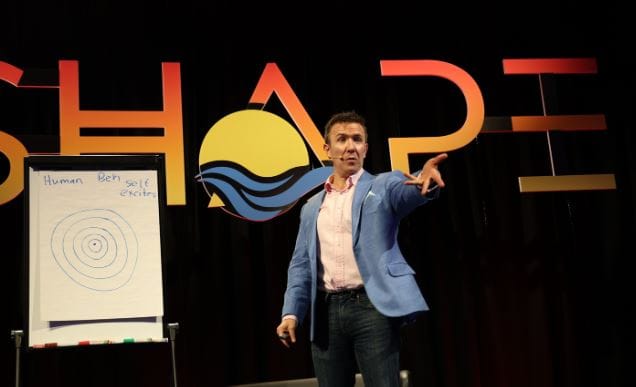The Legal Market by the Numbers: What the Latest Data Means for You

Labour market data is painting a clear picture of how Australia’s legal profession is evolving, and what that means for both lawyers considering their next career step and for firms looking to hire. According to the ABS Labour Force, Australia (August 2025), the national unemployment rate nudged up slightly to 4.3%, with participation steady at 66.9%. Employment overall rose to 14.6 million people. While the ABS data doesn’t break down the legal profession in its headline release, the broader labour force numbers signal a market that’s holding steady: still tight, but with just enough movement to create opportunities for both candidates and employers. For a closer look at the legal profession itself, Jobs and Skills Australia (JSA) provides some telling numbers. Their occupational profile for solicitors (ANZSCO 2713) shows around 99,500 solicitors employed nationwide, with employment growth averaging about 3,600 new positions each year. The profile highlights that around 61% of solicitors are female, with a median age of 37 and median weekly earnings of about $1,828. Interestingly, about 13% of solicitors work part-time, pointing to the growing importance of flexible work options in the legal space. The 2024 National Profile of Solicitors adds even more detail (even though the data is a little dated). Compiled by Urbis for the Law Society of NSW, the profile shows there were 97,500 practising solicitors in Australia in 2024 – up 47% since 2014. Private practice remains dominant, employing 64% of solicitors, while the proportion of solicitors in rural or regional areas has slipped from 12.5% a decade ago to just 8.8%. The gender balance has tipped further, with 56% of solicitors now female, compared to 44% male. So, what does this all mean? For candidates, it’s clear that the legal profession continues to expand, with steady demand across private practice and in-house roles. If you’re considering your next move, the data suggests that opportunities are abundant, particularly if you’re open to flexible work or relocation. For clients, the growth trajectory and the demographic trends point to both opportunities and challenges. The profession is attracting and retaining more women, but regional coverage is thinning, which could make it harder to secure talent outside metro areas. With median earnings sitting around $1,828 a week, competitive salaries are important, but so too is culture, career progression, and flexibility if you want to attract and keep the best people. If these numbers have you thinking about your next career move (or how to strengthen your team) get in touch with Elias Recruitment. We’re here to connect great lawyers with the right opportunities, and to help firms find the talent they need in a changing market. Jason Elias
A New Generation of Graduates – What’s Changed and What It Means for You

It’s clear that the latest wave of law graduates brings with them a fresh set of expectations, and it’s more than just anecdotal chatter among recruiters. Let’s dig into what the data tells us. According to Jobs and Skills Australia, the professional workforce, including the legal sector, is forecast to grow by approximately 409,800 jobs (10.9%) in the five years to May 2029, and by 785,000 jobs (20.9%) through to 2034. That sustained demand gives new graduates real flexibility and confidence in their early career choices. With opportunity comes expectations. The Australian Jobs 2025 report makes it clear that younger professionals are seeking more than just a role and a pay check, they want structured career progression, continuous upskilling, and transparency about future growth. Data also shows strong early employment outcomes for law grads via the 2023 Graduate Outcomes Survey: 74% of law and paralegal graduates are in work within four to six months, well ahead of the 68.9% average across all fields. This confidence also translates into mobility. ABS data shows that in the year to February 2025, 12% of people aged 15–24 changed jobs – almost double the national rate. Gen Z doesn’t just want flexibility; they expect it. A recent survey revealed that around 61% of Gen Z workers in law regard flexible hours as extremely important, and they’re often relied upon to drive digital transformation in firms through reverse mentoring and tech adoption. Graduates are entering a legal profession where technology skills are increasingly essential. According to the Australian Jobs 2025 report, digital literacy is now one of the most in-demand employability skills across professional industries, including law. This aligns with ABS data showing that 60% of managers and professionals who work from home cite flexibility, often enabled by technology, as their main reason, reflecting a shift towards tech-enabled, agile work practices. For many new entrants, familiarity with tools such as legal research software, case management systems, and emerging AI applications is not an added bonus but an expected part of their professional toolkit. So what does this mean for law firms? It’s no longer enough to offer an attractive salary. To engage and retain this talent, you need to provide meaningful development, genuine flexibility, and a culture that values purpose, innovation, and digital fluency. Firms that can do this won’t just attract top graduates, they’ll help them thrive and stay. At Elias Recruitment, we’re attuned to these shifts and ready to guide you in connecting with (and building careers alongside) the next generation of legal professionals. Jason Elias
Jason Elias re-elected to the RCSA Board

Elias Recruitment is pleased to announce that Jason Elias has been re-elected to the Board of the Recruitment, Consulting & Staffing Association (RCSA), representing recruiters across Australia and New Zealand for the next two years. For clients and candidates, this matters. RCSA is the peak body for the recruitment, staffing and workforce solutions industry in ANZ, with a purpose to enhance lives, organisations and the economy through the world of work. It drives professional practice, promotes and protects the industry, and enables better business for members. The RCSA Board is elected by members and is responsible for the direction and governance of the Association; setting policy, practices, management and operations. Jason’s continued role ensures a practitioner voice is at the table as the Association shapes standards and advocates for the sector. RCSA members also commit to the Code of Professional Conduct, reinforcing ethical practice, accountability and consistent service, principles that align with how Elias Recruitment partners with both clients and candidates. Please join us in congratulating Jason on his re-election. We look forward to bringing you the benefit of ongoing industry leadership through informed advice, strong standards and practical insights that improve hiring outcomes.
Why Culture Isn’t Just “Nice to Have”

In August at RCSA’s SHAPE Conference, I had the chance to sit in on Dr Adam Fraser’s keynote, and I haven’t stopped thinking about it since. Adam, a human performance researcher, has spent decades studying what drives sustainable workplace performance. His work with elite athletes, military units, and global organisations has shown again and again that culture isn’t fluff, it’s the engine. One story he shared made me sit up. He recalled visiting a law firm and asking why they thought they kept losing senior associates. The firm’s leaders explained that those lawyers felt they weren’t treated well. When pressed further, one senior partner openly admitted, “I’m not going to change. I was treated poorly at that level, so now it is their turn.” That one sentence is disappointing and familiar. It reflects the cycle so many workplaces fall into, especially in high-pressure industries like law. We normalise behaviour because it happened to us, and in doing so, we pass it on. Toxicity becomes tradition. As Adam put it, one of the biggest blocks to cultural improvement is the idea that “it is the leader’s job.” Too many of us shrug off responsibility because we think culture is someone else’s domain. The truth is, every single person in an organisation contributes to it. Every conversation, every meeting, every interaction adds another layer to the culture we all experience. Dr Adam Fraser at SHAPE (Credit RCSA Instagram) That really resonated with me, because at Elias Recruitment we see this play out daily. Lawyers often leave roles not just because of the money or the hours, but because of how they feel treated. When firms lose people, they lose more than just capability. They lose trust, reputation, corporate history and momentum. On the flip side, firms with a strong, healthy culture become magnets for talent. People want to stay, they want to grow, and they recommend their firm to others. Adam’s research with Deakin University reinforces what many of us instinctively know: culture is incredibly hard to change once it is set. He likens it to an immune system, it fights off anything new or foreign. That is why bold cultural initiatives often fail. They are not reinforced by daily behaviours and habits. The trick is consistency. Adam explained, it is not about lofty vision statements that get rolled out once a year, but about the everyday actions that shape the lived experience of work. From my perspective, this is one of the biggest lessons for both clients and candidates. For clients, culture is your competitive edge. It is not about perks or marketing collateral, but about how people are treated day in and day out. The juniors you mentor today are tomorrow’s partners, and they will mirror what they learn from you. For lawyers, it is about recognising that you play a role too. Culture is not something handed down from the top. It is built in every choice you make, whether you are supporting a colleague, giving feedback, or handling pressure. If we want the profession to thrive, the cycle of “I suffered, so you must too” has to end. Culture is everyone’s responsibility. It is not just nice to have, it is the difference between a workplace people endure and one they will fight to be part of. At Elias Recruitment, we are committed to connecting firms with lawyers who not only have the right skills, but who will help strengthen and sustain positive workplace cultures. If you are looking for your next career move or keen to build a healthier, high-performing team, get in touch with us today. — Jason Elias, CEO, Elias Recruitment
AI in Australian legal practice: a 2025 guide for firms and lawyers

At Elias Recruitment, we know AI is no longer just experimental in law, it is operational, and expectations are rising. The Law Council of Australia has established a central hub that aggregates guidance and updates on AI (including Generative AI). It’s an important tool for everyone in the legal profession, emphasising the fact that materials can date quickly, meaning practitioners should check the latest protocols for their jurisdiction and exercise caution given ethical, professional and legal risks. We have put together a quick guide to help both our clients and candidates navigate this challenging time, while not falling behind as this technology advances at lightening pace. Firms. 1) Publish and maintain an AI policy. Treat this like any other risk instrument. Draw on existing resources like the Law Society of NSW’s AI hub (including court protocol trackers) and the Law Institute of Victoria’s AI Hub. Tailor the resources to your practice areas and client promises. Update it quarterly. As we know things are moving fast in the AI space. 2) Build “human-in-the-loop” safeguards. Require qualified lawyer review of any AI-assisted work product for accuracy, privilege, confidentiality and citation integrity. Recent Australian incidents highlight why unverified AI outputs are unacceptable in court or client work. 3) Align with court expectations. Many courts now issue directions on AI use. Ensure litigators and investigators follow the current protocol list and capture that compliance in your matter procedures. 4) Train for capability, not hype. Focus CPD on safe prompts, verification workflows, citation checking, and secure data handling, areas the professional bodies are prioritising. 5) Nominate ownership. Assign a partner (policy), a practice manager (process), and a knowledge/IT lead (tooling) to keep your policy live and auditable. Lawyers 1) Show “AI fluency with duty of care.” Demonstrate you can use AI to speed first drafts or research while meeting ethical and court standards. Reference recognised guidance in interviews and work examples. 2) Explain your verification workflow. Be ready to walk through how you check citations, preserve confidentiality and record human review, addressing the Law Council’s caution about evolving risks. 3) Target CPD that maps to outcomes. Choose courses that lift matter velocity without compromising quality (document review, research triage, client-ready drafting). If you are planning a hire or weighing your next move, we can align role requirements and candidate capability with the latest Australian guidance, helping you gain the benefits of AI without compromising standards. Contact [email protected]
The Classy Quit: How to Resign without Burning Bridges

The only certainty in life is change, so when you change jobs – do it well. You have said “yes” to a new offer and now it is time to finish strong. A clean, compliant resignation keeps your personal brand intact and reduces stress caused by a “bad leave”. Your Resignation Cheat Sheet. How to resign well: As a matter of good form, you should resign in person to your manager/ partner. Have a typed-out letter of resignation, including a date of departure in line with your employment contract, a thank you and offer handover. Hand it over at the end of the meeting. Do not criticise or get into details at this meeting (there may be an exit interview for that). Try to keep things professional and not personal. This is easier if you leave details to a minimum. End positively and let them know how much you have enjoyed the chance to work with and learn from the team, but it is time for a new challenge. Let them know that your mind is made up and you are not open to changing it or entertaining counteroffers. Reaction: While you have known about your intention to leave, it may come as a shock to your manager. Expect any reaction – big feelings, strategic silence, or warm professionalism. Your message stays steady. Often on hearing of a resignation, employers go into panic mode as they think about how they are going to fill the gap. They will often try to turn you around or make amends for issues that may have concerned you. Just keep it simple – “I’ve committed to my new role and will make the handover smooth.” Counteroffers usually end in regrets (see article). Notice & leaving early: If both sides agree, you can finish earlier; otherwise, work the notice properly. Do this well as there is nothing worse for your reputation than a former employer who thinks you were just “dialling it in” or you leave landmines in your files for the next person to deal with. Reputation: In a tight industry like legal, your personal brand and reputation is paramount. You want your former employers to all speak highly of you. Remember your current workplace can often be a source of referrals down the line and may be called upon to be a referee. Consultants can make this easier Resignations are emotional, and the admin can get fiddly. If you have gone through a recruiter for your new job, they can coach you through the tricky parts: aligning start dates with notice, crafting the letter, navigating counteroffers, and planning a stress-free handover. We can also help with strategies to keep relationships warm and references glowing. If you are ready to move with confidence, talk to Elias Recruitment for discreet advice and a seamless transition to your next role. For full rules and examples, see the Fair Work Ombudsman’s guidance on resignations.
Lawyer Happiness in 2025: Flexibility, Purpose, Progress

Retaining top legal talent remains a priority for every firm, and a smart career focus for every lawyer. Turnover drains time, budget, and client confidence; equally, the right environment helps lawyers deliver their best work and build sustainable careers. According to a recent CNBC ‘Make It’ article by a CEO who has interviewed over 30,000 people, happiness at work comes down to a sense of progress, purpose, and strong relationships. With that in mind, here is a guide designed by our team at Elias for both firms and candidates. After all, happiness is balance: the right work, the right team, at the right time. For firms: What retains great lawyers now? Design the employee experience on purpose Be explicit about role expectations, growth pathways, and how hybrid actually works (including “contact days” and why they matter). One size does not fit all. Make flexibility real and useful Balance purposeful in-office time (training, collaboration, client cadence) with meaningful autonomy the rest of the week. Prioritise outcomes over presenteeism. Recognise early and often Publicly acknowledge client-impact wins; privately recognise stretch efforts. Timely, sincere recognition costs nothing and compounds engagement. Engage, then act Use short pulse checks to surface friction points (work allocation, tooling, mentoring) and close the loop with visible improvements. Invest in capability Offer targeted learning (AI-assisted research, project management, leadership) tied to transparent promotion criteria. Show how today’s files build tomorrow’s role. For lawyers: How to stay happy and in demand. Know your non-negotiables Be clear about the mix of flexibility, mentoring, and matter profile you need to do your best work, and communicate it early. Align on purpose and process Ask how the team uses in-office time, how matters are staffed, and how success is measured. Clarity reduces friction. Seek feedback in short cycles Replace annual surprises with regular check-ins. Apply feedback to lift both client impact and career trajectory. Build portable skills Deepen practice expertise while adding complementary capabilities (tech/AI literacy, client development, leadership). Protect wellbeing Sustainable performance is a competitive advantage. Use leave, set boundaries, and flag workload risks early. Why this matters. The candidate market remains selective. Lawyers favour environments that respect flexibility and use office time purposefully. Many firms are planning around defined contact days while hiring selectively for high-impact roles and projects. The cost of avoidable turnover, financial and cultural, remains significant and getting the fundamentals right protects clients, teams, and growth. At Elias Recruitment, we pride ourselves on connecting outstanding lawyers with outstanding teams and understand culture and ‘happiness’ is a large part of success. Book a 15-minute consult or a confidential career chat via [email protected]
Battle for the Best: How to Secure Top Legal Talent in 2025 and Beyond.

The fight for top legal talent in Australia is heating up. With employment in the sector tipped to grow 6.6% over the next five years, law firms and corporate legal teams are gearing up for one of the most competitive hiring landscapes we’ve seen in years. At Elias Recruitment, we know the stakes. With over 25 years in the game, we’ve helped countless firms win their talent battles, and we’re here to make sure you don’t just compete… you conquer. Here are six battle-tested strategies to help you rise above the rest and lock in the brightest legal minds of 2025. Strengthen Your Employer Brand Think of your employer brand as your armour. Without it, you’ll struggle to stand out. Today’s candidates, especially Gen Z, want to know what you stand for – culture, values, and diversity matter as much as salaries. Sharpen your brand by: Showcasing wins and culture on your website and socials. Highlighting your DEI initiatives. Sharing authentic employee stories. Offer Competitive Compensation & Benefits Money might not buy happiness, but it does attract top lawyers. Beyond pay, candidates are weighing up wellness benefits, flexibility, and growth opportunities. Win this round by offering: Performance bonuses and incentives. Health and wellness perks. Hybrid and remote work options. Professional development budgets. And don’t forget – benchmark regularly to stay ahead of the pack. Provide Clear Career Pathways Nobody wants to feel stuck in a dead-end role. Legal professionals want to grow, and the firms who offer clear pathways will win loyalty. Your secret weapons: Transparent progression pathways. Structured mentorship. Leadership training to develop tomorrow’s partners. Embrace Flexibility — The New King Flexibility is no longer a perk, it’s the crown jewel. Remote and hybrid work are here to stay, and candidates expect it. Stay competitive by: Offering hybrid models. Equipping your team with the right tech. Building a culture that supports work-life balance. Streamline Your Recruitment Process In this battle, speed is everything. A sluggish process means losing candidates to faster-moving firms. Sharpen your process by: Defining roles clearly from day one. Keeping candidates updated throughout. Making quick, decisive offers. Or better yet…partner with Elias Recruitment to cut through the noise and move faster than your competitors. Build Long-Term Candidate Relationships The real winners don’t just fill today’s roles, they’re already planning for tomorrow’s. Building a talent pipeline ensures you’re never caught short. Stay battle-ready by: Staying connected with promising candidates. Networking at industry events. Engaging actively on social media. Elias Recruitment Can Help You Win At Elias Recruitment, we bring more than half a century of experience to help you secure top legal talent, and keep them. Here’s how we give you the edge: Curated Talent Pool – pre-screened candidates aligned with your culture and needs. Market Insights – salary benchmarks, hiring trends, and competitor moves at your fingertips. Streamlined Recruitment – faster processes to secure top talent before the competition does. Long-Term Strategy – building sustainable pipelines so you’re always prepared. Ready to win the war for talent? Partner with Elias Recruitment and let’s build your future team today. Sources – Jobs and Skills Australia – Employment Projections 2024–2029; Australian Jobs 2025 Report (Department of Employment and Workplace Relations); Jobs and Skills Australia – Industry Projections
Counteroffers: Should You Stay or Should You Go?

Counteroffers are common, and complicated. While you’ll often read that people who accept them leave within a year, the reality is more nuanced. Many lawyers use a resignation to prompt a conversation about pay, conditions, workload or progression they didn’t feel comfortable raising earlier. The key is clarity. Make a deliberate decision that aligns with your goals, not a reactive one. 1) Pause First: Why Were You Looking? Before you assess the counteroffer, revisit your original “why.” Ask yourself: Work-life balance: Has workload or flexibility been a pain point? Progression and recognition: Do you feel valued and set up to grow? Culture and leadership: Are these energising you or draining you? Remuneration: Was pay the only driver, or just the easiest to talk about? If these issues existed before, a pay rise alone won’t fix them. 2) The Money Mirage A bigger salary is attractive but look beyond the headline number. Consider: Scope creep: Will higher pay bring unsustainable expectations? Trade-offs: Could the increase be offset by reduced bonuses or benefits later? Root cause: Does the raise address the real reason you considered leaving? 3) Promises vs Proof Counteroffers often arrive with praise, promises and plans. Test them: Specifics: What, precisely, will change, and by when? Measurables: What outcomes will show the change is real? Documentation: Will they put it in writing with review checkpoints? If it isn’t specific and time-bound, it’s a sentiment, not a solution. 4) The Trust Factor Once you announce you’re leaving, perceptions shift. Potential implications: Heightened scrutiny: Pressure to “prove” loyalty and performance. Succession planning: Quiet contingency plans may already be in motion. Leverage lost: Future negotiations can feel different after a resignation. 5) Reputation & Relationships Law is a small world. How you handle a counteroffer matters. Think about: Market signals: Will accepting send mixed messages to your network? Recruiter rapport: Repeatedly accepting counters can erode trust. Brand equity: Professional, timely communication preserves relationships. 6) A Simple Decision Framework Use this quick triage before deciding: Purpose: Will staying move you closer to your 12–24 month goals? Proof: Are the changes concrete, documented and time-bound? Energy: Will this choice increase your day-to-day energy and satisfaction? If you can’t say “yes” to at least two, think carefully before staying. 7) If You Decide to Stay: Do It Well Get it in writing: role scope, reporting lines, pay, benefits, KPIs, timelines. Set checkpoints: 30/60/90-day reviews to track progress. Align expectations: Clarify workload, resourcing and promotion criteria. Protect future options: Keep networks warm and your CV current. 8) If You Decide to Go: Exit with Class Be clear and courteous: Thank them, confirm your decision and timeline. Control the narrative: Agree a professional internal and client comms plan. Hand over cleanly: Leave strong documentation and close files properly. 9)For Hiring Managers & Firms If you’re making counteroffers: Diagnose first: Understand the real reasons behind the resignation. Act substantively: Address scope, support, flexibility and development, not just pay. Move fast and formally: Put clear changes and timelines in writing. Retain with intent: Follow through at 30/60/90 days to rebuild trust. How Elias Recruitment Helps – Confidentially For candidates: Market intel, salary benchmarks, and a clear view of your options so you can decide with confidence—now or later. For clients: Honest diagnostics, retention advice, and access to pre-screened talent when a genuine move is the right outcome. Ready to talk it through—without pressure? Elias Recruitment offers confidential guidance to help you choose the path that serves your long-term success.
Helping Kiwi Lawyers Cross the Ditch

Making the leap across the Tasman isn’t just about swapping jandals for thongs or sheep paddocks for city skylines. For many New Zealand lawyers, it is a chance to step into bigger firms, specialise in new areas of law, and enjoy a well-earned boost to their pay packet. At Elias Recruitment, Jarrod Moyle is the go-to guide for Kiwi lawyers looking to take that step. Based in New Zealand and proudly a Kiwi himself, Jarrod understands the motivations, the challenges, and the cultural quirks that come with crossing the ditch. He also knows what Australian firms are looking for, making him the perfect bridge between candidates and clients. “NZ lawyers usually contact me when they are in the early planning stages. I will find out when they are moving, which city they want to live in, and what type of job they are after,” says Jarrod. Timing, he says, is crucial. Employers don’t want to wait too long before a new hire starts. “Firms generally won’t wait more than two months for someone to begin, unless there are special circumstances.” That is why Jarrod often stays in touch with candidates until they’re closer to their move date, then starts making introductions. He recommends private practice roles as the best first step in Australia, while in-house positions are more competitive, with Kiwi lawyers going head-to-head with established local candidates. So what is the big appeal of Australia? For most, Jarrod says, it comes down to opportunity. “For most, the biggest drawcard will be the pay – usually 20–25% more than at home.” Of course, it is not just about salary. “Australia has larger firms, bigger clients, and greater opportunities to specialise. If you are moving to NSW or Queensland, you’re also likely to enjoy a warmer climate.” The good news for clients is that Kiwi experience often translates smoothly across the ditch. “Lawyers with backgrounds in commercial, M&A, competition, IP, construction, or employment law will find it an easy transition and be in demand.” Even lawyers with general practice experience (in areas like property, commercial, or wills and estates) can transfer their skills seamlessly into similar firms in Australia. Litigation roles, on the other hand, can be a little trickier due to differences in the court systems. For Jarrod, the real reward lies in supporting people through such an exciting moment in their careers, while also helping firms access motivated, adaptable talent. “It is an exciting time in their life, and I get to be part of that journey.” Although Jarrod has only just begun building this pipeline, he has already spoken with dozens of Kiwi lawyers considering the move. Success, for him, is when both sides win: lawyers finding their feet in a new market, and firms gaining skilled professionals ready to contribute from day one. “Helping lawyers take a significant step forward in their legal career is what it is all about.” Whether you are a lawyer weighing up the move or a firm keen to tap into this growing pool of talent, Jarrod is ready to help. “If you have a date in mind for when you are looking to move, get in touch for an initial conversation and we can start the process. Jarrod Moyle [email protected]